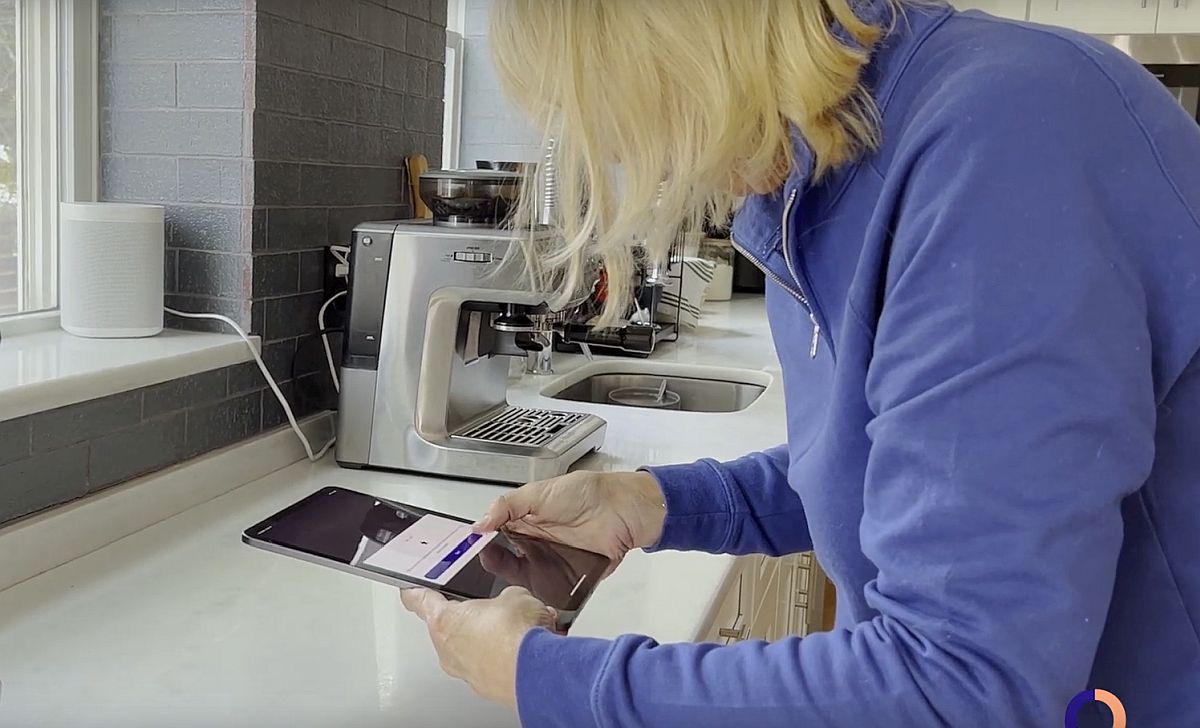
During the RADAR-AD consortium study, the Altoida AR app achieved a level of performance in preclinical Alzheimer’s disease that is currently unattainable with standard cognitive tests. The results, published in Nature Digital Medicine, unveiled the potential of machine learning and augmented reality-based digital biomarkers in Alzheimer’s detection.
Altoida is a pioneer in developing digital biomarkers for neurological conditions. The Altoida AR digital cognitive and functional assessment (Altoida AR app) is an investigational test based on its investigational algorithm Digital Neuro Signature™ (DNS) – Mild Cognitive Impairment (MCI). The AR app consists of both motor and augmented reality (AR) tasks for the early identification of individuals with Alzheimer’s Disease (AD). The motor tasks involve several short exercises testing fine motor skills and reaction times to set personalized reference values against population statistics for motor skills, visual abilities, and reaction times.
The AR tasks are intended to simulate a complex IADL-like activity of a “place-and-find” task in which participants have to hide-and-seek virtual objects following specific instructions. The app output is generated by a machine learning model trained to differentiate between cognitively normal and impaired participants. Leveraging data from internal device sensors, the Altoida AR app identifies digital biomarkers that have been trained from cohort data.
As part of the ‘Remote Assessment of Disease and Relapse – Alzheimer’s Disease’ (RADAR-AD) study, Altoida AR app was administered to 121 enrolled participants over 50 years of age to assess cognitive and functional decline in AD using several remote monitoring technologies (RMTs), including the Altoida AR app. In contrast to traditional pen-and-paper clinical assessments, RMTs are designed to detect early impairment by allowing frequent and objective monitoring of function during tasks associated with instrumental activities of daily living (IADL) without the intervention of a clinician.
The Altoida AR app-based tasks were administered in the clinic alongside a standard neuropsychological assessment battery. Additionally, participants utilized the Altoida AR app independently at home on their devices weekly for up to 8 weeks.
The study results showed that the Altoida AR app could distinguish healthy controls from individuals with preclinical AD and prodromal AD, and preclinical AD from prodromal AD, both with in-clinic and at-home tests. The study results highlighted a significant finding: the Altoida AR app achieved a level of performance in preclinical Alzheimer’s disease (AD) that is currently unattainable with standard cognitive tests. In addition, no learning effects were found for the Altoida AP app in this study.
RADAR-AD is a European project funded by the Innovative Medicines Initiative (IMI). RADAR-AD is looking at two very important areas in AD, namely functioning and technology. The results of this study have been published in the Nature Digital Medicine.
(Press release/RAN)























































Please login or sign up to comment.
Commenting guidelines